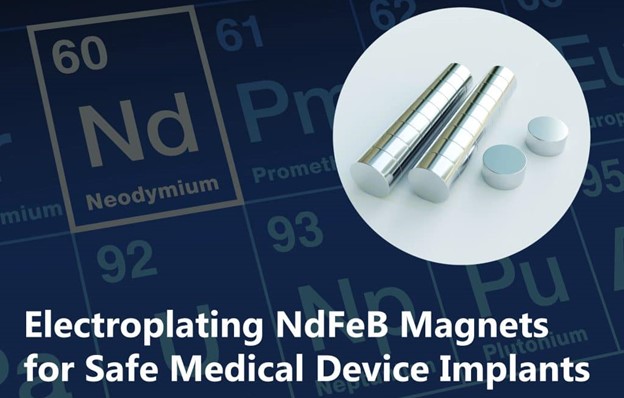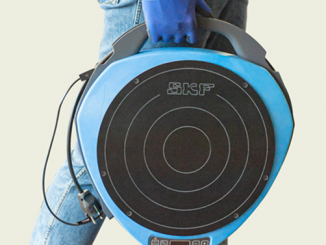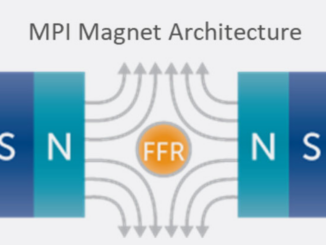
In the ever-evolving landscape of medical technology, advancements in materials and manufacturing processes play a pivotal role. One such innovation that holds immense promise is electroplating NdFeB (Neodymium Iron Boron) magnets for short-term and long-term medical device implants. In this blog post from electroplating specialist Proplate, Nicky Bhakta explores the applications of electroplated NdFeB magnets in medical devices and underscores the crucial aspect of hermetic sealing for ensuring their safe and effective use:
I. The Power of NdFeB Magnets in Medical Devices:
NdFeB magnets, known for their exceptional magnetic properties, are revolutionizing the field of medical devices. Their high magnetic strength and compact size make them ideal for a wide range of applications, from diagnostic tools to therapeutic implants. Let’s delve into some key applications:
- MRI Machines and Imaging Devices:
NdFeB magnets enhance the performance of Magnetic Resonance Imaging (MRI) machines, contributing to clearer and more detailed medical images. The increased magnetic strength improves signal-to-noise ratios, ultimately aiding in more accurate diagnoses.
- Implantable Medical Devices:
From hearing aids to pacemakers, the application of NdFeB magnets in implantable medical devices is transforming patient care. The compact size and powerful magnetic field make these magnets an excellent choice for creating smaller, more efficient devices that can be comfortably implanted.
- Drug Delivery Systems:
Electroplated NdFeB magnets are instrumental in the development of targeted drug delivery systems. The magnets can guide and control the release of medication to specific areas within the body, minimizing side effects and optimizing therapeutic outcomes.
II. The Importance of Hermetic Sealing: Ensuring Safety in Implants:
While the applications of NdFeB magnets in medical devices are promising, ensuring their safety is paramount. Hermetic sealing, the process of creating a completely airtight and watertight seal around the magnet, becomes crucial for several reasons:
- Biocompatibility and Longevity:
Hermetic sealing prevents the exposure of the magnet to bodily fluids, ensuring biocompatibility and longevity of the implant. This is especially vital for long-term implants, where the device needs to function reliably within the body for extended periods.
- Preventing Corrosion:
NdFeB magnets are susceptible to corrosion when exposed to moisture. Hermetic sealing acts as a protective barrier, shielding the magnet from environmental factors and preventing corrosion, which could compromise the integrity of the implant.
- Minimizing Tissue Response:
A hermetically sealed implant minimizes the risk of adverse tissue responses. By preventing contact between the magnet and surrounding tissues, the likelihood of inflammation or rejection is significantly reduced.
Electroplating NdFeB magnets for medical device implants opens up new possibilities for enhanced diagnostics, treatments, and patient care. As we continue to push the boundaries of medical technology, it’s crucial to underscore the importance of hermetic sealing in ensuring the safety and efficacy of these innovative applications. By combining the power of NdFeB magnets with meticulous sealing techniques, we pave the way for a future where medical devices are smaller, more efficient, and safer for long-term integration within the human body.
Located in Anoka, Minnesota, ProPlate specializes in barrel and rack electroplating solutions for precious and semi-precious metals to serve the medical & dental, semi-conductor & electronics, energy & technology, and aerospace & government industries. See www.proplate.com.



